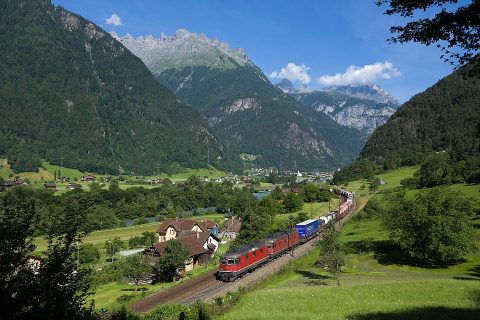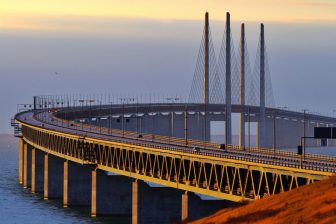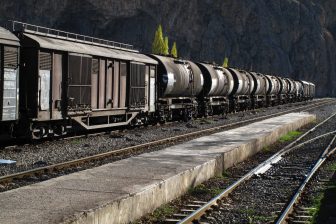
Swiss subsidies needed to compensate for loss combined transport
Swiss intermodal operator Hupac is calling on the Swiss government to temporarily suspend the annual reduction of subsidies for combined transport until the economic crisis is over. In the first quarter of 2023 the operator lost 10 to 15 per cent of its traffic volumes to the road, and it fears a further decline if no action is taken.
The decline in combined transport volumes was a phenomenon observed in Europe in general this year. According to Hans-Jörg Bertschi, Chairman of the Board of Directors of Hupac Ltd, this is due to a sum of negative factors such as the decline in traffic due to the economic situation, high rail costs, falling road freight rates and the chronic instability of the rail network.
“If the reliability of the rail infrastructure and the quality of combined transport do not improve, we can expect a further shift back to the roads in the coming months”, he said during the financial media conference of the Hupac Group last week.
Subsidies and rolling highway
The chairman proposed several measures to revert a further decline, measures that depend above all on the transport policy framework. The suspension of the phase out of subsidies in Switzerland is one of these measures. By adjusting the subsidy to the reduced transport volume in the first quarter of 2023, the loss of competitiveness of combined transport can be partially compensated, he argues.
Bertschi also called for continuation of the Rolling Highway until 2028. This service carrying trucks on a railway section runs between Freiburg in Germany and Novara in Italy. It is currently very well used due to the increase in road traffic. The continuation of the Rolling Highway service until 2028 is under consultation, and deemed an appropriate measure by Hupac to counteract the reversed modal shift.
More measures
Apart from these concrete measures, Bertschi spoke of the need to improving performance through digital transformation. Existing open systems such as DX Intermodal’s Data Hub must become the standard for all combined transport in Europe, he suggested. He also emphasised the role of Switzerland and Italy in terms of operational management for international Alpine combined transport.






Yes,
now too obvious, “elephant in room”, a “chronic instability of the rail network”, duly has to be attended!
Neither railway core clients, nor any client, now afford luxury, of not bothering about On Time. (JIT no longer is sufficient, etc.)
A track standard, that already at last century did pass b b d, now decisively has to be outed.
Electrification…, yes, but a robust, etc.